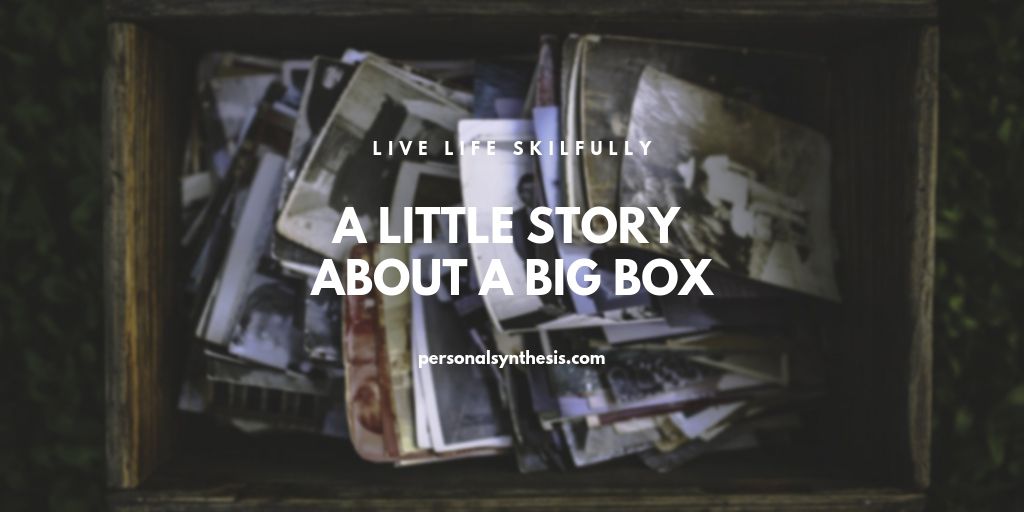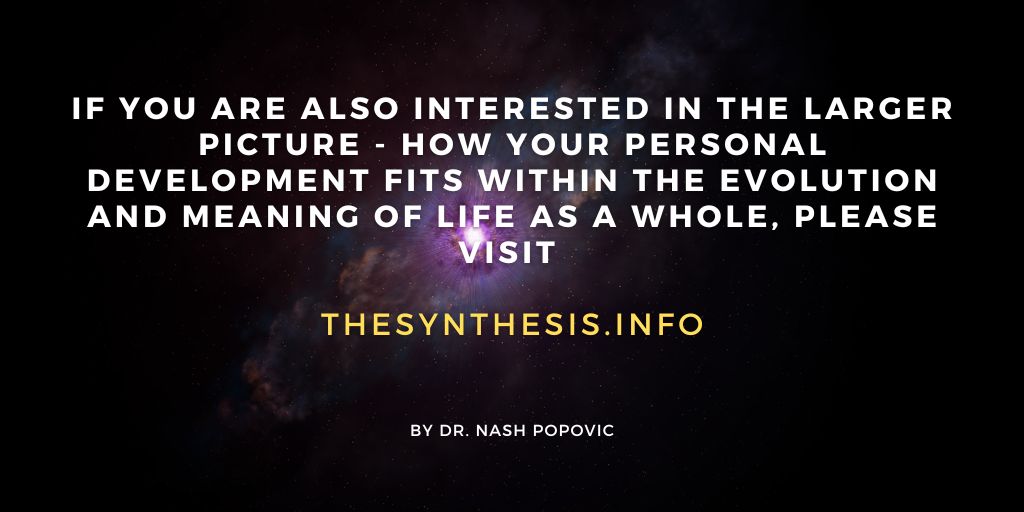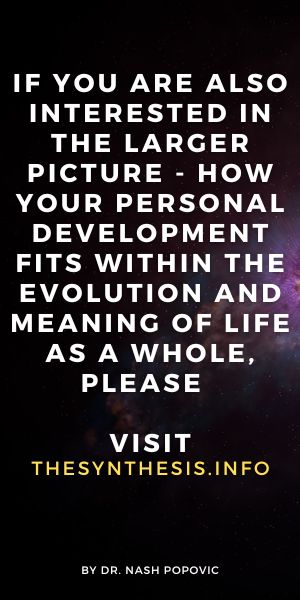A Little Story About a Big Box

Written by Emma Buck
“Embrace your grief, for there your soul will grow”.
Carl Jung, Swiss psychiatrist and psychoanalyst.
Zelda had an argument with her husband, so she went upstairs to put it in her box. She closed the lid and put the box carefully back in its place at the bottom of the wardrobe. She went back downstairs.
Her husband was sitting on the sofa scowling. Zelda started preparing the evening meal. With the argument safely put away she could ignore her husband’s mood. She chatted to him about what she was cooking, what had happened during her day. By the time dinner was ready and he came to the table to eat it, her husband had stopped scowling.
A couple of weeks later one of the children got into trouble at school. Once again Zelda took the box out and put the trouble into it. She put the box back.
A few years later, one autumn, Zelda’s mother died. Zelda had taken some days off work to be with her at the end, then there was the funeral to arrange and all the people to be contacted. After that she went upstairs and got the box out of the wardrobe, as usual, to put these events away.
Zelda couldn’t say exactly when she first got the box, but she had been filling it for as long as she could remember. There was the time when she was five and she had lost her stuffed rabbit. It was gone forever and the sadness, the finality of that loss, was too much to bear. It had to go in the box. There were all the times her father had called her stupid, and all the tests she had failed. They went in the box. There was the time she felt ashamed of herself for being mean to another girl at school who’s mother, she had found out later, was terminally ill. This too went into the box.
She had kept the box at a distance, thinking about it only occasionally. It had always moved house with her, and she always found somewhere out of the way to store it. But this time, after Zelda’s mother died, she found she couldn’t put the box back in the wardrobe where she usually kept it. There were too many important things inside it now. What if one of the children saw it? No. Now, she would have to always keep it with her.
Zelda carried the box around with her everywhere she went. She couldn’t let it out of her sight, she couldn’t risk anyone else finding the box and all the shame, guilt, grief and anger it contained.
The box was getting very heavy, and she felt constantly weighed down by it. Everyday it dragged her down. Occasionally, just sometimes, she left it on the bus on the way to work and she didn’t notice all day. You don’t notice the absence of a burden, only its presence. And always on these days when she got lightly on the bus to go home again she would find the box there on the seat next to her. It must have been travelling about all day on the bus without her. She couldn’t risk losing it again, so when she got to her stop she took it with her and stumbled off.
Some people close to her could see that the box was getting heavier, but they could not make her leave it. And soon, deterred by their inability to help, they stopped trying.
Eventually the box became so cumbersome Zelda could not get out of bed in the morning. She could not carry it into the shower to wash, she could not carry it into the kitchen to get anything to eat, and she certainly could not any longer lug it onto the bus to go to work.
Zelda lay in her bed with the box. The box was so heavy now it threatened to consume her. She wanted to climb inside it and close the lid.
Time went on and Zelda lived with the heavy box, but it seemed to suck all the light from her life. She knew there was a life out there to be lived, but she felt apart from it. Her only companion was the box, and so it became her solace. And her trap.
One day Zelda woke up and realised the box had got much too heavy for her to bear anymore. She wondered what was inside it. She couldn’t even remember.
So she thought maybe she ought to take a look. But just then she didn’t have the energy. Just like she didn’t have the energy to cook herself a meal or go for a walk or clean out the kitchen cupboards. These were things she knew she ought to do, but she couldn’t. Looking inside the box became another of these things.
Until one day. Her child came to her and he said: “Mummy, why do you love that dusty old box more than me?”
Zelda’s heart lurched. She didn’t love the box more than her son! She realised she had come to hate the box.
And her husband said: “Won’t you let me help you clear out that dusty old box? It makes me sad, lying in the bed between us.”
And so, on a quiet spring morning, when there was a tiny sliver of hope in the air, Zelda sat on her bedroom floor and moved the lid a little crack and took a peep inside. What she saw surprised her. It was a mess. Everything was tangled up like spaghetti. Pulling at one strand just revealed several more. It was difficult to find the end. Sorting out this box was going to take some work.
It became her job, unpacking this box. For a small amount of time every day Zelda opened it and tried to make sense of what was inside. She found she was able to untangle some of the mess. Nestled among it she discovered little parcels, unopened for years, which she could take a fresh look at. Some could be re-wrapped in new paper and put carefully back inside the box. Some could be discarded altogether.
After a while the box began to feel a bit lighter and Zelda was able to take a shower again. And then she went for a walk. And then she flew a kite with her children in the sunshine.
The box was manageable enough now that Zelda could go about her daily tasks unimpeded. But it was fragile, and needed to be treated with care and attention.
Zelda realised the box would always be with her, but that she need not let it get so heavy again. She would no longer neglect it by keeping it in the dark, but instead found a place for it on a shelf in her bedroom. She would be careful over what she put into it. Each little parcel would be examined and considered, and if it then went into the box it was because that was the best place for it, for now.
Personal Synthesis is a handy ‘one-stop-shop’ that brings together all the areas that play a vital role in our everyday lives, from self-awareness to intimate relationships. The materials are the result of twenty years of research and have evolved through the experience of running numerous personal development programmes with the general public, young people and university students.
To learn more, please visit the Personal Synthesis materials that cover this and many other topics.
Emma Buck
Emma Buck is a counsellor and personal consultant working with children in primary schools and adults in private practice. This is her second career. After 10 years as a journalist - where she worked for local newspapers, magazines and charities, covering politics and social affairs - Emma found herself looking for a new direction. It was after a spell of personal counselling that she had her 'a-ha' moment and decided to become a counsellor herself. She recently completed MSc in Integrative Counselling and Coaching, the only programme of its kind in the world. Emma works from a humanistic and person-centred perspective but integrates other counselling and coaching approaches as necessary, with a particular interest in narrative theory. Her research examined how combining counselling and coaching could help older people.



